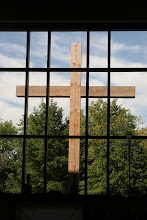No one can celebrate a genuine Christmas without truly being poor. The self-sufficient, the proud, those who, because they have everything, look down on others, those who have no need even of God – for them there will be no Christmas. Only the poor the hungry, those who need someone to come on their behalf, they will have someone. That someone is God. Emmanuel. God-with-us. Without poverty of the spirit, there can be no abundance of God. ~Oscar Romero~
At church last Sunday, I asked most of the people with whom I chatted before and after services, “are you ready?” and the most common answer was “not at all!” We are busy with our preparations, our baking and cooking, our shopping and everything else that comes with Christmas anticipation. We have to be ready!, to have everything done by December 24th so we can enjoy a leisurely holiday, give our gifts and share a festive meal with family and friends.
In an Advent devotion, Bishop William Willimon wonders, in this season of generous giving, if it is more difficult for us to be the receivers than the givers. He writes, “We enjoy thinking of ourselves as basically generous, benevolent, giving people… Yet I suggest we are better givers than getters, not because we are generous people, but because we are proud, arrogant people. The Christmas story [according to Luke] is not about how blessed it is to be givers but how essential it is to see ourselves as receivers.” (p. 143, 44)
In the biblical account of the first Christmas, “we are portrayed not as the givers we wish we were, but as the receivers we are. Luke and Matthew go to great lengths to demonstrate that we – with our power, generosity, competence and capabilities – had little to do with God’s work in Jesus. God wanted to do something so strange, so utterly beyond the bounds of human imagination, so foreign to human projection, that God had to resort to angels, pregnant virgins, and stars in the sky to get it done. We didn’t think of it, understand it or approve it. All we could do, at Bethlehem, was receive it.” (p. 145)
“This strange story tells us how to be receivers. The first word of the church, a people born out of so odd a nativity, is that we are receivers before we are givers. Discipleship teaches us the art of seeing our lives as gifts. That’s tough, because I would rather see myself as a giver. I want power – to stand on my own, take charge, set things to rights, perhaps to help those who have nothing. I don’t like picturing myself as dependent, needy, empty handed.” (p. 147)
“It’s tough to be on the receiving end of love, God’s or anyone else’s. It requires that we see our lives not as our possessions, but as gifts. ‘Nothing is more repugnant to capable, reasonable people than grace,’ wrote John Wesley a long time ago.”(p. 148)
God’s love comes to us in a way that we don’t expect. We receive a gift that “we thought we didn’t need, which transforms us into people we don’t necessarily want to be. With our advanced degrees, armies… and material comforts… we assume that religion is about giving a little of our power in order to confirm to ourselves that we are indeed as self-sufficient as we claim.
Then this stranger comes to us, blesses us with a gift, and calls us to see ourselves as we are – empty-handed recipients of a gracious God who, rather than leave us to our own devices, gave us a baby.” (p. 149) Are you ready for that?
Adapted and excerpted from “The God We Hardly Knew,” by William Willimon, found at religion-online, and also in the book, “Watch For the Light: Readings for Advent and Christmas” Orbis Books, Maryknoll, New York, 2004, p 141-149.
Monday, December 14, 2009
Subscribe to:
Comments (Atom)

